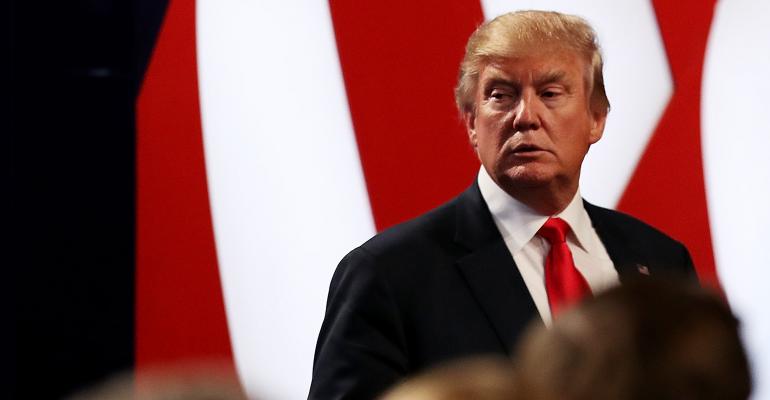Two chief market strategists said they were optimistic about the markets for the coming year, as long as a foreign policy blunder or excessive trade restrictions don't get in the way.
Liz Ann Sonders, the chief investment strategist at Charles Schwab, and Jonathan Golub, RBC Capital Markets’ chief U.S. strategist, gave their respective economic outlooks in front of hundreds of attendees who braved a severe snowstorm to attend a forum held by the Investment Management Consultants Association (IMCA) in Manhattan on Thursday.
The rosy scenario they painted is growing increasingly at odds with some market observers who believe the euphoria pushing up the markets since the beginning of the year is getting ahead of itself. “This idea that the expansion is so long-dated now? Expansions don't die of old age,” Sonders said. “They die of excess.”
She said people have been negative like never before during the latest bull market, to which Golub offered a potential cause. “Because we haven’t had the kind of excess we have in the past, having been through the tech bubble and the financial crisis, we have this feeling that the next [bear market] is going to be granddaddy of them all,” he said.
Sonders said she likes the prospects for the financial sector in the year ahead. The bump in the sector over the last quarter, she said, was not just in response to Donald Trump's election. In her mind, the sector is “incredibly under-owned,” and the renewed investor interest since the election is “nowhere near the recession outflows.” U.S. equity fund allocations for banking plays are currently at their highest level since the second quarter of 2011, according to data from EPFR, an Informa Financial Intelligence company.
Technology and healthcare were two other sectors Sonders said she and her employer like for the foreseeable future.
Golub described the economy as “surprisingly okay” and called the 4 percent growth target for the U.S. economy floated by the Trump administration “silly.” However, he said getting growth from 1.6 percent to 2.6 percent could be done.
Sonders and Golub shared a similar opinion about tax reform: Knowing history and the other politicians currently inhabiting the Capital, tax breaks for corporations were much more likely than those for citizens.
Golub said tax reform was “something but not everything” for an economic expansion, and that he didn’t think House speaker Paul Ryan was in favor of tax breaks to simply pump up the U.S. economy. Corporate tax cuts, rather, would be part of a system overhaul to “give businesses an incentive to stay here.”
Like TD Bank Group’s Deputy Chief Economist Derek Burleton told advisors at TD Ameritrade Institutional's advisor conference in San Diego last week, Sonders and Golub said only a foreign policy blunder could severely derail the U.S. economy they are considering in their forecasts.
He and Sonders agreed that, among other things, the protectionist attitude toward trade the Trump administration has vocally demanded would, if it comes to pass, be harmful.
“If we do anything to damage our own trading partners, we’re shooting ourselves in the economic foot,” Sonders said.
Golub said he recently returned from Canada and the phrase the “thickening of the border” was one he was hearing about a lot. “One on one, the U.S. is in an advantageous [trade] position against everyone” but he cautioned against becoming “insular.”





